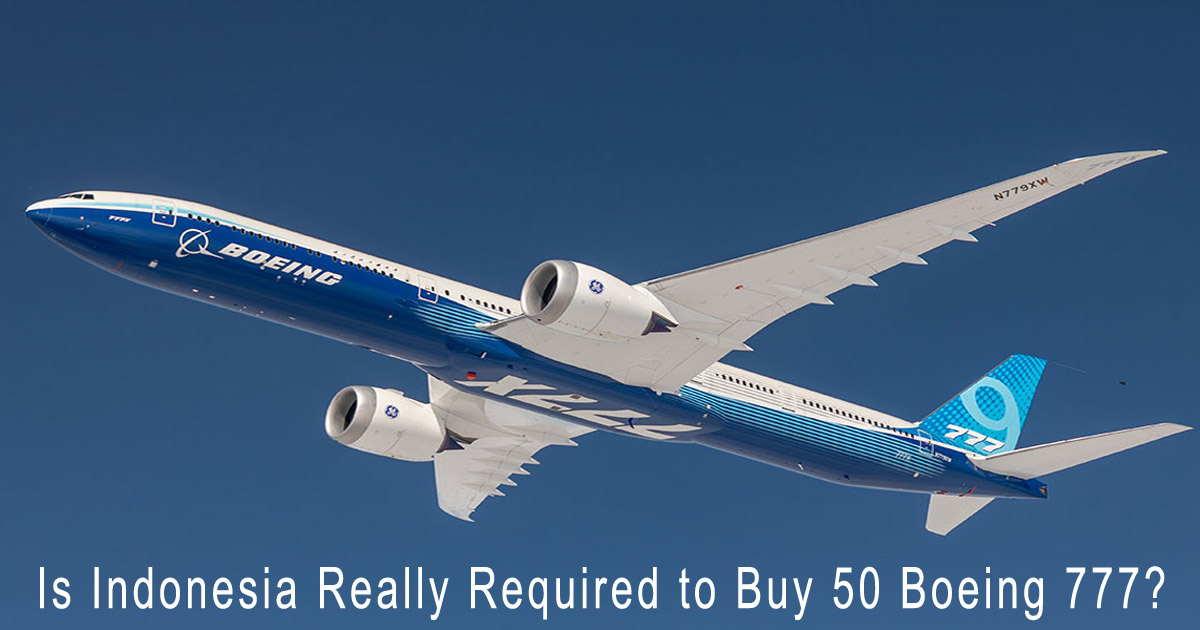Is Indonesia Really Required to Buy 50 Boeing 777 – Lately, there’s been quite a buzz about reports that Indonesia is “required” to buy 50 Boeing aircraft from the United States. Most of them are said to be Boeing 777. This rumor started after former US President Donald Trump claimed during a campaign speech that Indonesia would purchase dozens of Boeing jets as part of a trade deal. But is Indonesia really obligated to buy them? And what does this mean for our aviation sector and national budget? https://chuebaerg.com
Let’s break it down—no clickbait, just facts and thoughtful analysis for readers who want more than a headline.
Is Indonesia Really Required to Buy 50 Boeing 777? Here’s the Truth, Risks, and Opportunities
What Did Trump Actually Say?
During his campaign, Donald Trump said that Indonesia had committed to buying 50 Boeing planes from the US. He described this as part of a bilateral trade agreement. “Many of them are Boeing 777s,” he continued. So far, there’s no official confirmation from the Indonesian government. No contract has been signed. That suggests we’re looking at a political gesture or intent, not a binding deal.
Does Indonesia Actually Need 50 New Planes?
From a national standpoint—especially for state-owned airlines like Garuda Indonesia and Pelita Air—there is real demand for new aircraft. Garuda, after years of restructuring and post-pandemic downsizing, would benefit from more long-haul jets. The Boeing 777 suits international routes to Europe, the Middle East, and the US.
That said, 50 planes is a big number. Even a giant like Emirates would consider that a long-term expansion. So the key question is: is this about meeting local needs, or part of a broader geopolitical strategy?
How Much Does One Unit Cost?
According to Boeing’s list prices, a Boeing 777-300ER costs about US$330 million. Large airline deals often get discounts of up to 40%. That brings the total deal to somewhere between US$10–15 billion, depending on the specs and terms.
That’s a serious sum for Indonesia’s budget. So who’s footing the bill? Will it be done through leasing? Or financed by external lenders?
Financial Risks and Insurance
Aviation risk experts stress that major aircraft deals must include strong risk management. This covers delays, technical issues, and possible contract cancellations. A common solution is Aircraft Non-Delivery Insurance (ANDI). Indonesia needs to make sure this kind of protection is in place.
Insufficient insurance might cost the country billions of dollars. That risk grows if the deal is a forward purchase or long-term pre-order.
Political and Diplomatic Angle
Trump’s statement isn’t just about business. It also sends a political message. The US often pushes partner countries to buy American products as part of larger trade or defense deals. For Indonesia, this could relate to tariffs, textile exports, or military cooperation.
Still, Indonesia must be cautious. It should avoid falling into a diplomatic purchasing trap, where buying decisions serve foreign interests rather than local needs.
Alternatives: Airbus or Local Production?
Indonesia already uses Airbus jets in Garuda’s fleet. For the sake of diversity and efficiency, it’s fair to ask: is buying 50 Boeing 777 really the best move? There are also long-term plans to get Indonesia involved in global aircraft production. These include partnerships with Turkey’s TAI and China’s COMAC.
If buying is necessary, why not negotiate more than planes? For instance, ask Boeing to set up a Maintenance, Repair, and Overhaul (MRO) center in Indonesia. That would provide long-term benefits beyond the planes themselves.
Conclusion: Strategic Investment or Financial Burden?
Talk of Indonesia being “required” to buy 50 Boeing 777 is certainly eye-catching. But it should be approached with caution. Without a signed deal, clear funding, or strong justification, the proposal raises more questions than answers.
Handled properly—with open budgeting, smart negotiation, proper insurance, and tech-transfer—this could be a big leap forward for Indonesia’s aviation sector.
Bottom line: the public deserves more than hype. Decisions like this should be grounded in logic—not just diplomacy.



